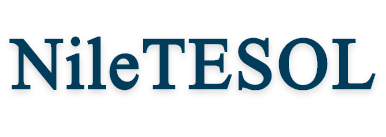This SIG proposes to create a unique forum for the discussion of issues connected with research into ELT and other, bringing together teachers, Academic teacher-researchers, school teacher educators and researchers from around the world. In this active community, members share their experiences of research, its findings, interpretations and its implications and network face-to-face or online regularly. Research skills include questioning and integrating critical thinking skills in language education entails an exploration of culture, unpacking of ideas, the interaction with and evaluation of opinions and thinking components within EFL language settings. Teachers’ struggling to adopt 21st skills as well as Science/Math/Sports teachers often find it challenging to use a second language medium of instruction, let alone its integral research skills and reasoning to build scientific expression, esp with project-based assessment integrated all across the spectrum of school and university students. Therefore, it is empowering for teachers and students to be able to allocate trusty sources, formulate logical reasoning, question possibilities, gather information and phrase their findings. Utilizing learning technologies in order to yield quality research and develop critical thinking skills falls within our scope of interest.
RE SIG has the purpose of developing a clear and rigorous idea of research and its applications to empower language learners and educators. It also provides a forum for the discussion of research praxis, its integration in language learning and life skills as well as to provide research gaps and ideas to language educators. It aims at providing an area where language teachers can enjoy friendly, professional and engaging environment to examine the validity and reliability of research, integrating assessment as well as instruction (of research) in various learning environments.
Goals: This SIG aims to
- Discuss research in EFL learning contexts, theoretical issues and their applications as well as standards and strategies to support post-graduate research in general.
- Encourage innovation and discussion of the implications of integrating research and critical thinking, in a diversity of research topics, with an eye on social media and different sources of knowledge.
- Mentor members to designing courses and classroom materials that allow students to develop research skills, at school and university levels. It aims at creating a community of practice for research writing through establishing a forum for supporting research activities (steps and tips for writing).
- Promote and integrate research among other 21 century skills such as: diversity, NON- discrimination and gender equality, tolerance etc… into EFL classes via teaching sources and validating knowledge circulation as well as its implications for students.
Coordinators:
Dr. Ghada Alakhdar
Dr. Karim ElSaharty
Steering Committee
Amena ElShafie
Dr Amira Fouad
NileTESOL Professional Development Events
The first ReSIG Event
Title: Research and the Humanities
The Event Program
| Welcome Note and Debriefing about NileTESOL and the new Re SIG By:ReSIG Coordinators, Dr Ghada Alakhdar and Dr Karim El-Saharty |
| Teaching Research in the EFL Classroom (Dr Karim ElSaharty) |
| Brief Bio: Dr. Karim El-Saharty is an Assistant Professor in Applied Linguistics at Gulf University for Science and Technology (GUST)., Dr. Karim also was a Visiting Assistant Professor in the English Department at Miami University for two years and an instructor at the University of Arizona for eight years. Dr. Ibrahim holds a Ph.D. and masters’ in Applied Linguistics from the University of Arizona, along with a graduate diploma and BA in English Linguistics and Literature from Cairo University. Dr Karim’s research interest combines technology-enhanced language learning, new and digital literacies, online instruction, and learning analytics. |
| Overview of the Presentation: This presentation aims to familiarize the audience with Research Specific Interest Group (ReSIG), its activity, and its steering committee as well as members. Furthermore, the audience will receive a brief summary of the importance of conducting research and how it is integrated in teaching and assessment, esp that it became the Ministry of Education tool under Covid 19, replacing a deeply rooted tradition of summative assessment. Audience will be exposed to cutting-edge ways of integrating research activities into their English language classes. By the end of the presentation, participants will be confident in using several critical thinking strategies that enable them to develop steps of research using the communicative approach. |
| Break |
| Valid Sources and Avoiding Plaigarism (Dr Ghada Alakhdar) |
| Brief Bio: Dr Ghada Alakhdar is an Associate Professor and teacher trainer, she has 20 years of experience juggling academic research, teaching in a variety of institutions and supporting other teachers in their game. She was awarded the best PhD thesis award in Cairo university 2013 and her research area is women empowerment and cultural studies. |
| Overview of the Workshop: In this workshop, attendees will get introduced to the concept of valid sources that is one of the corner stones of research. The workshop will explain different types of “valid” sources and how to integrate them in research writing without falling into Plaigarism. Skills like scanning and annotation, integrating ideas in the body of writing and using citation to avoid plagiarism will be tackled. The workshop will present handy tools to cover these steps in an EFL classroom. Interested attendees will be eligible for enrolment for another workshop on “Evaluating Sources in a Research Incorporated Classroom”. |

